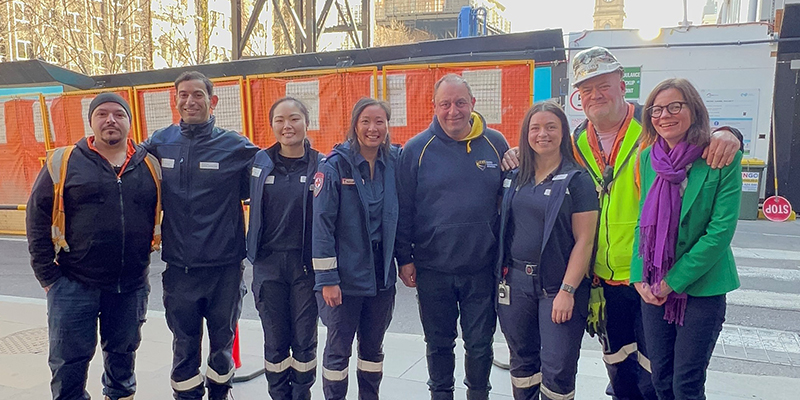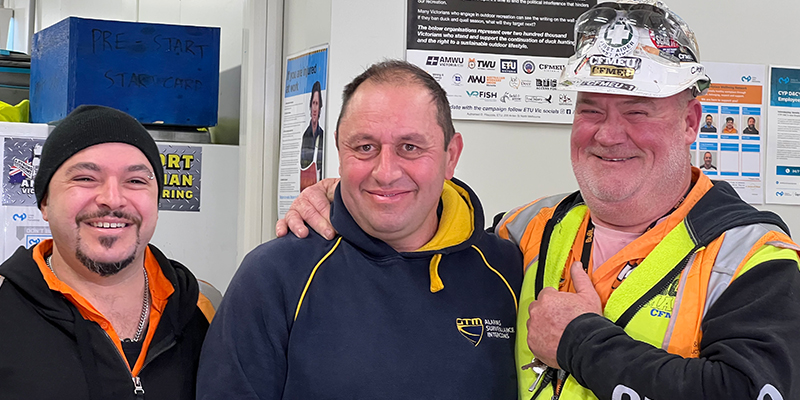Stroke Survivor Says Thanks
August 8, 2023 | in Community News
A Melbourne father who suffered a stroke while working on the Metro Tunnel has been given a new lease on life thanks to the quick-thinking actions of his workmates.
As part of National Stoke Week, 52-year-old Sebastian Gangemi reunited with Ambulance Victoria paramedics and members of the Mobile Stroke Unit (MSU) who came to his aid in May.
The carpenter had just arrived at the Town Hall Station construction site when he suddenly lost movement in his hand.
“I was holding a cup of coffee and the next minute I’d dropped it,” Mr Gangemi said.
“My colleague saw it happen and realised very quickly I wasn’t OK. My face had drooped and within minutes our first aid officer phoned Triple Zero (000).”

Two ambulances were dispatched, including the MSU – a custom-built stroke ambulance with a specialised team able to assess and start clot-dissolving treatment on Mr Gangemi before he arrived at hospital.
Ambulance Victoria Executive Director Clinical Operations Anthony Carlyon said Mr Gangemi was given the best chance of survival thanks to his coworkers’ swift response.
“With stroke, every minute counts and the sooner paramedics arrive and treatment begins, the better one’s chance of surviving and maintaining a good quality of life,” Mr Carlyon said.
“Because Mr Gangemi’s workmates recognised the signs of stroke, and because the MSU was able to respond, he has made a remarkable recovery.”

Mr Carlyon said Ambulance Victoria was pleased to work together with the Stroke Foundation this week and every week to raise awareness about one of our biggest killers.
Stroke Foundation Chief Executive Officer, Dr Lisa Murphy said Mr Gangemi’s story is a great example of knowing how F.A.S.T. (Face, Arms, Speech, Time) can save lives and reduce disability after stroke.
“Time is of the essence. When a stroke strikes, it attacks up to 1.9 million brain cells per minute, so acting quickly is crucial and it starts with knowing the signs,” Dr Murphy said.
Mr Gangemi said there were no warning signs leading up to his stroke.
“I know how lucky I am and it was also a real wake-up call for my friends and colleagues,” he said.
“Many of them have been to their GP for a check-up after seeing what happened to me.”
As part of National Stroke Week, paramedics will be out in force sharing the F.A.S.T. (Face, Arms, Speech, Time) signs of the medical emergency.
National Stroke Week runs until August 13.
